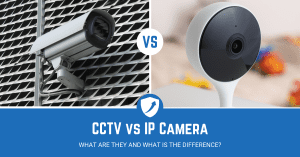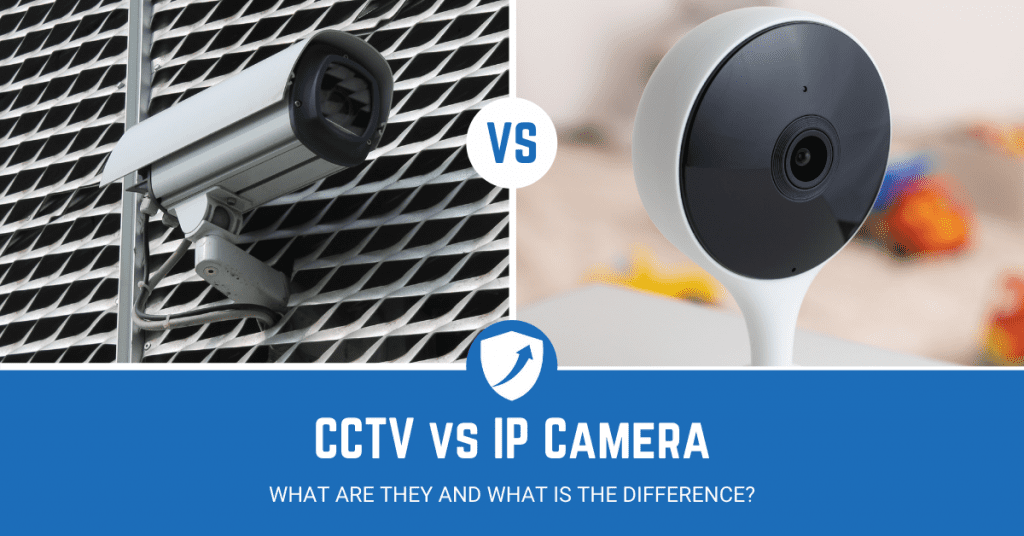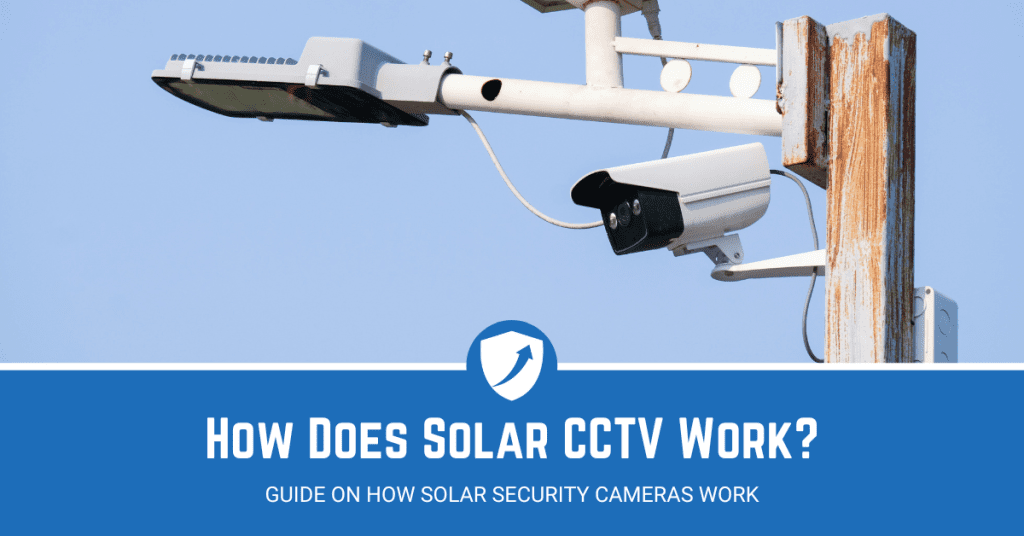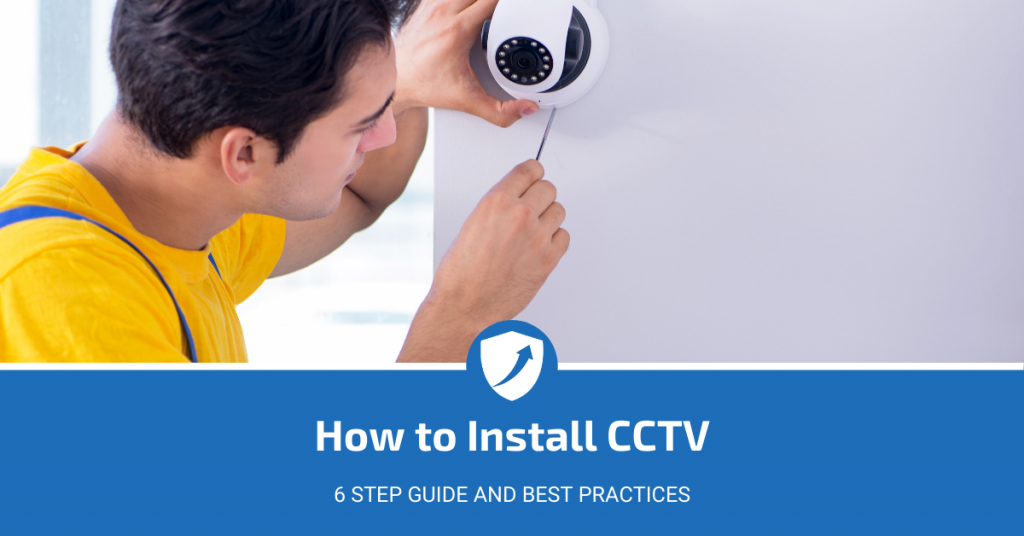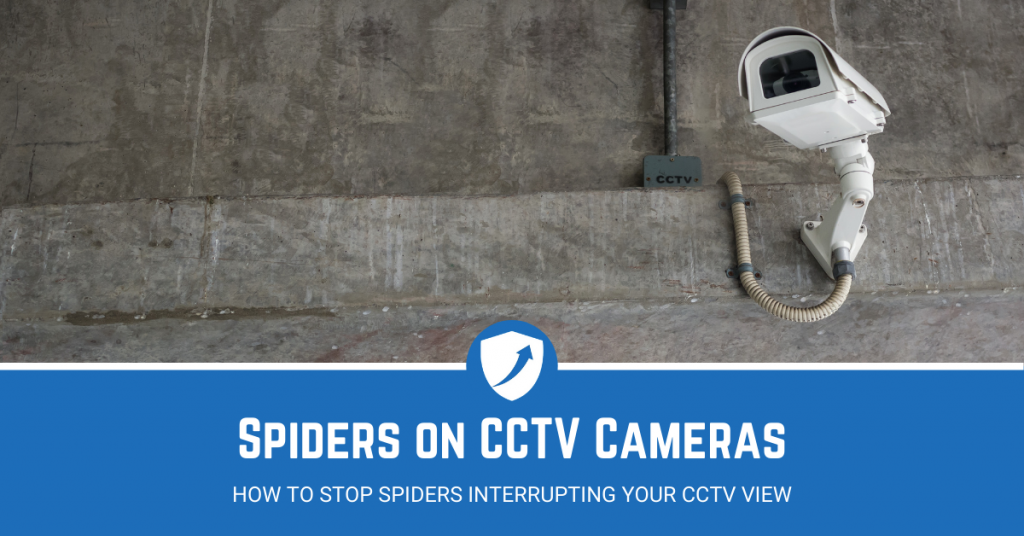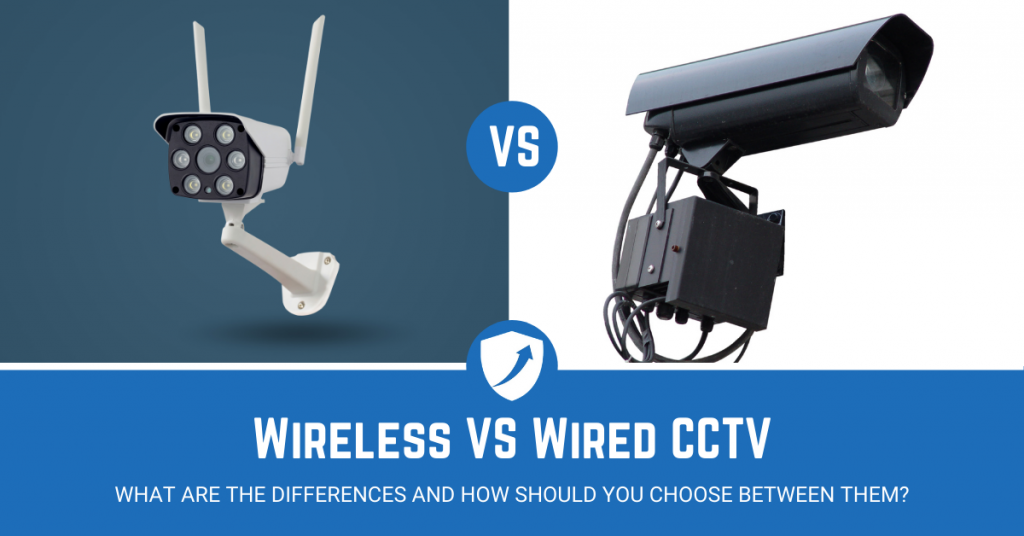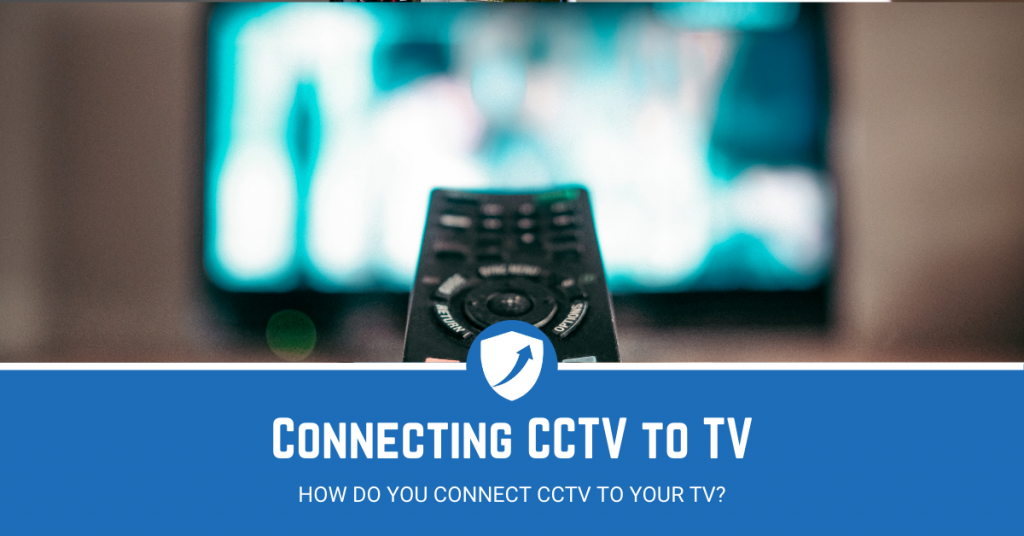When it comes to installing CCTV cameras in the UK, there is a lot to think about, especially with recent updates to data protection, it can be easy to make a mistake and incorrectly install CCTV without following the right steps.
Luckily, there is a lot of information that is widely available about CCTV legal requirements both commercial and domestic. With more and more places looking into installing CCTV from homes, to workplaces, to schools, and so on, it is important to know the legality and legislation around installing CCTV.
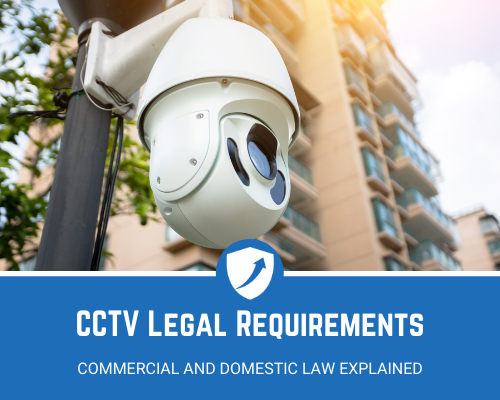
Across this guide, we will be covering some key areas of CCTV, its legality, commercial use, domestic use and other important information.
To summarise what we will be covering:
- Legality of Installing CCTV
- Laws & Regulations of Domestic CCTV
- Laws & Regulations of Commercial CCTV
- CCTV and Data Protection Laws
- Installing CCTV Legally
- Responsible CCTV Usage
What's in this Guide?
Do You Need Permission to Install CCTV?
There is a lot of misinformation about installing CCTV and people are often confused about the logistics and legality of CCTV systems.
Needless to say, every country has its own laws and regulations surrounding CCTV and its installation. We will be looking at the UK market and the legislation that affects UK businesses and private property owners.
In this section, we will be briefly covering the permission required for both domestic CCTV and commercial CCTV.
Does CCTV need planning permission?
The short answer is no, typically CCTV cameras in the UK do not require planning permission. However, this can depend on where and how you plan to install them. In some instances, it may be necessary to contact your local council for advice or permission.

Firstly, it is important to note that in the UK, CCTV cameras may require planning permission if they are installed on a property and visible from the public realm, whether this is street level or above. Any camera that is likely to capture images of people who are not in the building itself will need planning permission prior to installation.
Permission for Domestic CCTV
When it comes to installing domestic CCTV you do not need permission as a rule of thumb when you are the owner. However, if you are renting you need to get permission from the owner or landlord, which can be either written or verbal, but it is good to get things in writing.
If your property is listed, you will require consent to install CCTV on the property, and typically if you are granted permission you will need to install wireless CCTV cameras so they do not affect the building’s integrity and protected characteristics.
In other countries this is less of an issue, but in the United Kingdom there is a much higher percentage of listed properties and homes.
When thinking about domestic security systems such as CCTV it is important to think about some of the following points:
- Why am I installing the CCTV?
- Do I want it to be recording all the time or triggered by an action or motion?
- Do we need audio as well as video?
- Which areas of the house are we looking at covering?
- What other options could I consider to bolster my home’s security?
- What type of CCTV camera will we install?
These are just some helpful points to consider when looking at a home CCTV camera setup.
Permission for Commercial CCTV
Installing CCTV on commercial property requires paperwork to be filled out and the ICO (Information Commissioner’s Office) to be informed.
Failing to follow the correct steps when installing commercial CCTV can lead to huge fines and ramifications, so it is not worth cutting corners or not doing able research.
Although you do not specifically require permission for commercial CCTV, you do need to mae the ICO aware of your intent to deploy CCTV within your business.
Alongside this, you need to create a document called a Privacy Impact Assessment, which you can find multiple examples of with a simple Google search.
What is CCTV Actually Defined As?
As most people know, CCTV stands for Closed Circuit Television, but contrary to popular belief the CCTV system is not just the cameras.
A CCTV system is technically the cameras, the storage device (Digital Video Recorder or Network Video Recorder), the actual recordings, and anything else that is part of the wider capture of the video and or audio (such as a monitor, for example).
It is important to note, that a doorbell camera is technically defined as a CCTV device as it captures video and audio, albeit triggered by the subject’s action most of the time, i.e. ringing the doorbell.
Home CCTV Laws and Regulations
When it comes to home CCTV installation there is a full list of guidelines and rules that have been issued by the scarily named ‘Biometrics and Surveillance Camera Commissioner’
We will summarise the points for domestic CCTV usage below:
- You have to establish that you have a viable reason for installing CCTV at your home, this could be a recent break in attempt, rise in crime in the area, or just protecting your home and property.
- You need to have visible signage when taking CCTV recordings so people know that there is surveillance taking place on your property (the majority of CCTV cameras will come with this).
- Conversations between members of the public are not allowed to be recorded.
- The data and time stamps on your recordings should be accurate, in case they are ever needed to be used or submitted as evidence.
- The sole purpose of recording the footage should be to protect your home and not for any other reasons.
- Recordings can only be kept for a reasonable amount of time, this can vary but most agree on 30 days as a standard practice, after that recordings should be deleted.
- Ensure you are not recording your neighbour’s property, unless it is a limited view that primarily focuses on your property being covered and does not affect their privacy.
- You will need to alert your direct neighbours where you plan to record and the reason you are doing so.
Commercial Property CCTV Laws and Regulations
Although it is more common to see businesses using CCTV technology that does not mean it is easier to install and comply with guidelines. In fact, it is much harder and requires a lot tougher rules and regulations to be followed.
Again, we will summarise the key points when it comes to commercial property CCTV laws and regulations:
- Do not install the CCTV cameras in places where privacy is expected, for example toilets and changing rooms are the most common examples within a business.
- Give one person the responsibility of being in charge of recordings and have limited access to the footage, unless requested by someone in the recordings.
- The business must register as a CCTV operator with the Information Commissioner’s Office (ICO) and state their intentions with the system.
- Only keep the recordings for a reasonable amount of time (typically 30 days from the recording).
- Create a disclosure policy and keep staff access restricted.
- Keep the time and date stamps up to date and showing the correct information in case the footage is needed for evidence or by the police.
- Do not record private conversations between members of the public.
- Appropriate signage must be used and mounted stating that CCTV cameras are in operation on the property.
- Make all of your staff aware of the policies, responsibilities and procedures surrounding commercial CCTV usage.
- One person within your business must be assigned to handle questions, comments and complaints about the CCTV system and a privacy impact assessment must be published.
- Schedule regular audits of your CCTV to ensure you are up to code and publish any relevant findings within an update document.
- Uphold the ethics and operational standards of the CCTV system.
Is CCTV Covered Under Data Protection Laws?
With a lot of recent changes in data protection both in the UK and in Europe it is imperative to understand how the data protection laws affect your CCTV system.
Commercial Property CCTV & Data Protection
Are commercial property CCTV systems covered by data protection laws? The answer is yes, commercial CCTV installations are covered by the data protection laws, and specifically the data protection act (DPA).
Prior to installing any security cameras on your commercial property it is important to understand the DPA, notify the ICO and have done your research into rules, responsibilities and requirements.
Home CCTV & Data Protection
Although not quite as strict as commercial CCTV deployment, home CCTV systems are also subject to data protection laws.
It is not necessary to conduct a Data Privacy Impact Assessment for domestic CCTV, but it is recommended to at least understand data privacy and aim to reduce capturing non-consenting neighbours or private conversations.
6 Factors For A Compliant CCTV Installation
Having a compliant CCTV setup is important for a number of reasons and will stand you in good stead in the future. Although some people would incorrectly assume that there will be no ramifications for skipping steps, you can get yourself in a lot of legal trouble quickly if you are not careful.
In this section, we will be looking at a few key factors that will help you install a CCTV system that is both compliant and ethically sound.
1) Upholding People’s Privacy and Rights
As we have discussed throughout this guide, it is important to understand how to maintain people’s privacy and rights. Gaining consent is one of the most vital caveats when installing CCTV, whether it is for public or private surveillance (i.e. at home or for a business).
CCTV cameras can never be set up in places that are normally private and would not require surveillance, for example, toilets and changing rooms are always off limits.
If you are installing a CCTV camera at your home, you need to consider how to minimise affecting other people’s privacy, such as your neighbours.
You want to ensure your cameras cover your property, and if it covers someone else’s home or property to get their consent when installing your cameras.
2) Determine the Type of CCTV Camera You Need
Determining what type of CCTV camera you are going to need and which you are going to install is an important decision, and there are a lot of benefits to different models and styles you can choose from.
More specifically whether or not you want to have both audio and video captured by your CCTV cameras. Adding audio can create additional issues and can be seen as intrusive in everyday situations.
3) Fill in Your Paperwork
You will need to create a document that determines why you have decided to install CCTV on your property or commercial business. You will need to assess how it will impact other people’s privacy in the area it covers, especially if audio is involved.
This is more important for commercial CCTV usage, but does not hurt to have the document created even if you are using CCTV at your home. The form is known as a data protection impact assessment or DPIA for short.
4) Make Sure Your Policies are Updated
Once you have considered and completed the above three factors, you will need to get your policies updated. Again, this leans towards commercial CCTV installation and is not expected for domestic CCTV.
Updating your security policies, or just general documents to reflect you have installed CCTV is a vital step in deploying CCTV within a business. It is a good idea to have a whole set of guidelines and information for your security officer or designated individual to have and review.
5) Install Your Cameras Correctly
This may sound fairly obvious, but you would be surprised how often people get this wrong; Whether you have angled the CCTV camera incorrectly, not displayed appropriate signage or failed to register with the Information Controller’s Office, there are a lot of things to ensure you have done correctly.
One of the golden rules when it comes to installing CCTV, be that commercial or domestic, is to ensure you are not capturing more than you need to with your devices. In other words, only cover the entrance or exit you need to cover, not into your neighbour’s garden or the business next door.
6) Remain Compliant
The most important factor, excluding actually filing with ICO, is to remain compliant as you move forward with your CCTV installation and into the future.
It is easy to neglect responsibilities or forget to wipe the data and recordings after ‘X’ amount of time (30 – 90 days typically). To put this into context, if the data was to be leaked or breached you could risk fines, loss of reputation and even being sued.
Luckily, the majority of CCTV systems have ways to automatically delete data after a certain duration so this is often not an issue. If not, it is worth understanding how to delete the CCTV footage off your device.
When can I hand over CCTV footage?
It is important to know when it’s appropriate and legal to hand over CCTV footage. Request for CCTV footage in relation to police investigations, legal proceedings/insurance purposes and subject access requests are generally considered valid reasons for making this type of disclosure.
In order for individuals to have access to the CCTV footage capturing themselves, no other third parties must be present. For instance, if there is a road traffic collision involving multiple people, the only legal entities with power to request the footage in its entirety are police officers, insurance agencies and solicitors.
Security companies must adhere strictly to the UK Data Protection Act 2018 when sharing video material due to its sensitive nature. The organisation providing the video data must also take into account any potential Human Rights infringement when handing over any information obtained from surveillance cameras containing individuals or vehicles that can be identified without a warrant or court order.
Furthermore, it is vital that all requests for surveillance material released by organisations are clearly agreed and meet with terms set out prior before releasing these recordings.
Using CCTV Cameras Responsibly
Hopefully, by this point of the article, you have a much better idea about installing CCTV systems in the UK whether that is for domestic use or commercial use. Whichever type of CCTV you are looking at there is a strict code of practice in the United Kingdom.
Following the steps to actually install it and continuing to be responsible with your usage of the footage are two very different things. Having CCTV cameras installed means you have a responsibility to use it legally, and ethically.
If you fail to adhere to the rules and regulations of CCTV you can incur heavy fines and sanctions, this is even more severe if it is within a commercial setting. Fines can go as high as half a million pounds, so it is not something to joke about.


